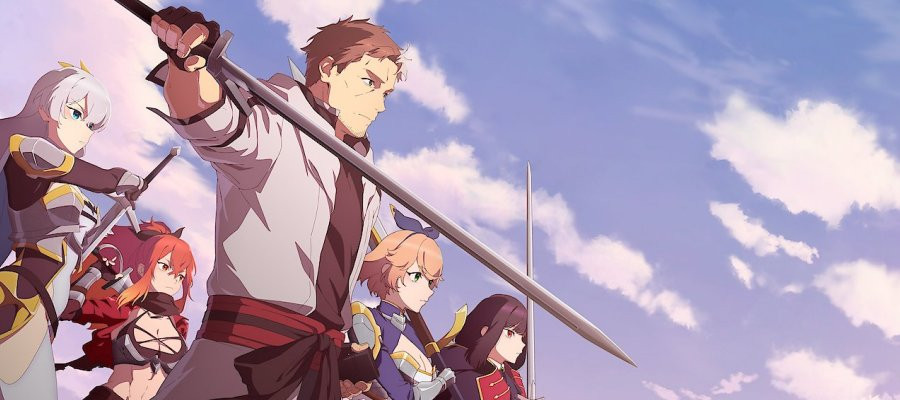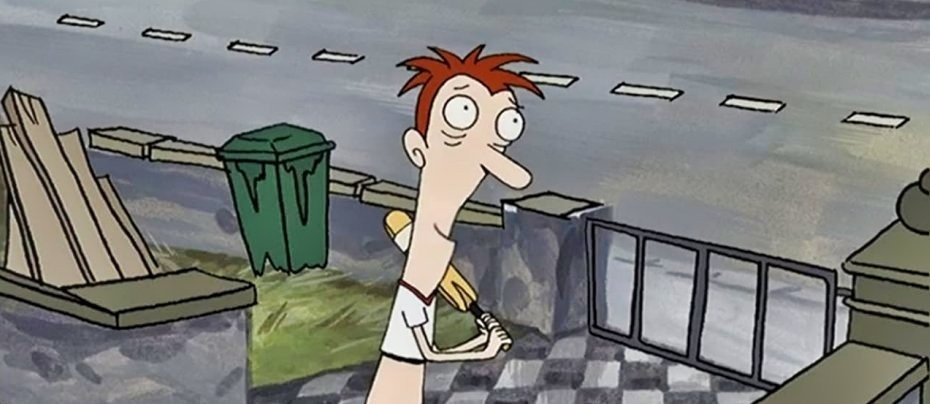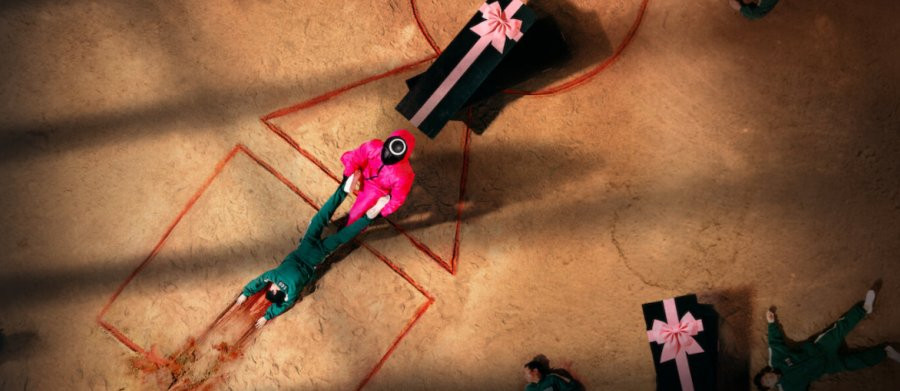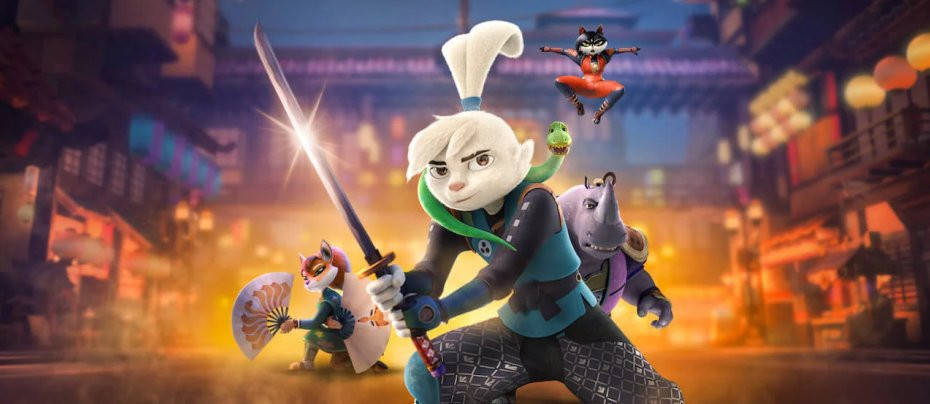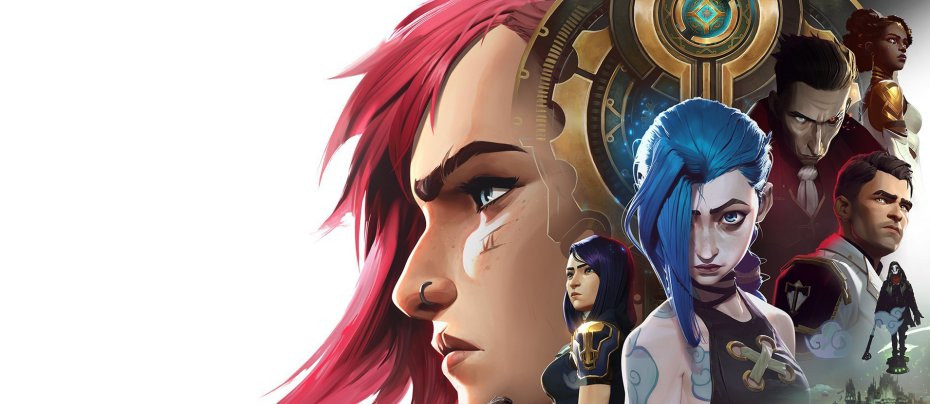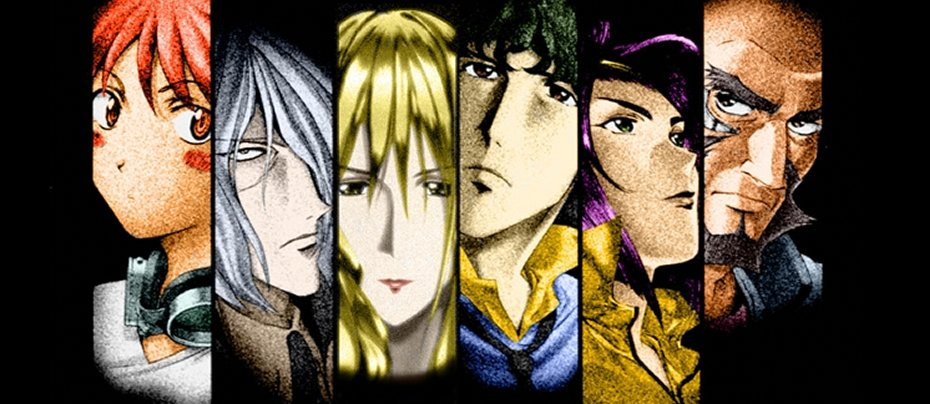
Cowboy Bebop
1998 - Japan“…an entertainment experience that is both exhilarating and intellectually stimulating – a rare combination”
Fans of the Netflix Arcane might be interested to know that it is not so much an innovation as the latest iteration of a well established genre known as 'adult anime,' which developed in Japan over several decades. If they want to see more, there is no better place to start than the beloved Japanese animation Cowboy Bebop. Indeed, Cowboy Bebop was the Arcane of its generation in that it introduced many Westerners to the exciting ideas in animated storytelling that originate in Asia.
As with a lot of 'anime,' the actual technology of the animation is cheap and crude. The drawing is simplistic, the movement often awkward and unrealistic, and there is an obvious attempt to save money by minimising the number of frames. The animators make up for this with the flair and imagination with which they use these techniques, their very simplicity actually serving to highlight and counterpoint the brilliance of the overall visual impact.
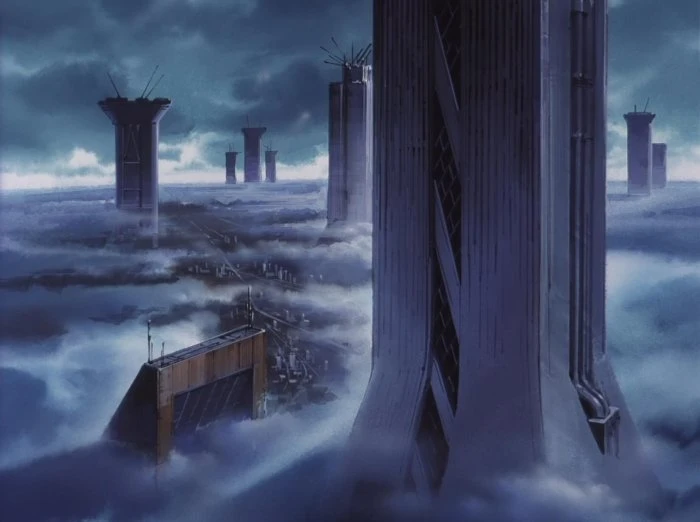
It is a triumph of style over substance, but it is still far from insubstantial. There is still a lot going on both in the animation and in the story. The 26 episodes are set in 2071 when Earth itself is barely inhabited. The human race has colonised the rest of the Solar System, "terraforming" other planets and asteroids, but most of these places still have a run down feel to them. Government is weak and no less than 300,000 bounty hunters, known as "cowboys," try to scratch a living by hunting criminals with prices on their heads.
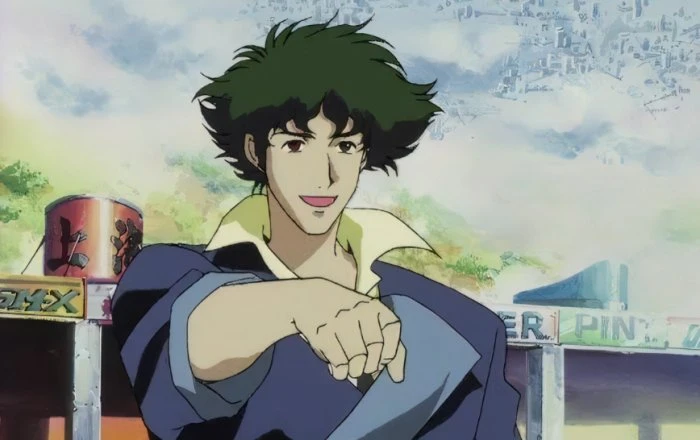
Among these is Spike Spiegel, a handsome young man with a criminal past who operates off a spaceship, the 'Bebop,' owned by former police officer Jet Black. Both are essentially loners trying to move on from bad memories, but as the series goes on they find a substitute family gathering around them. First they acquire a dog, a Pembroke Welsh corgi named Ein, who is a lot more intelligent than he looks. Then they hook up with Faye Valentine, a very attractive and aggressive young lady who ends up staying on the 'Bebop' without really being asked. It is interesting to note that no real romance ever develops between Faye and Spike or Jet.

The family is completed by the acquisition of a child, a loud, hyperactive, young girl who seems totally disconnected but is actually an extremely talented computer hacker going by the name Radical Edward. The way she seems to have no control over how her ADHD inner monologue becomes outer is both charming and irritating at the same time.
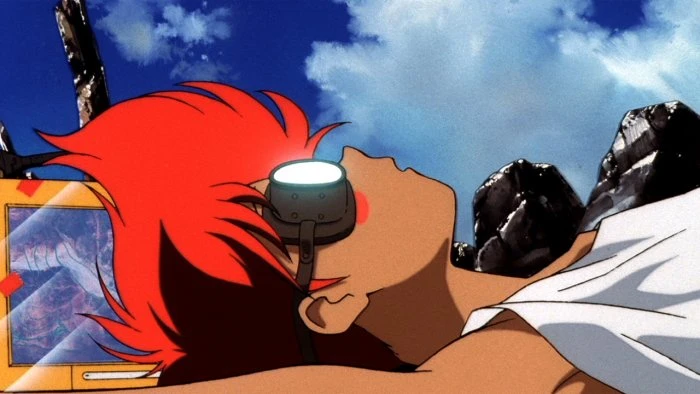
They enjoy a number of adventures together, some light-hearted, others considerably darker. Most episodes are freestanding and focus on the pursuit of a particular villain or villains of the week. Despite their undoubted individual and collective skills, the crew of the 'Bepob' rarely end up getting the bounties that motivate them. Something always seems to go wrong, or they find themselves making choices inconsistent with their assumed roles as cynical mercenaries. As a result they are usually short of cash - very short of cash: hunger is a frequent topic of conversation, especially since they are sometimes forced to choose between food and fuel.
Some episodes bring them into contact with elements from their respective pasts, so we begin to learn a lot more about them. In particular we see why they are all reluctant to trust others, which is also why it really means something when, very slowly and reluctantly, they begin to bond as a family - and why it is all the more tragic when the family breaks up as one of them discovers, or perhaps decides, that there is no escaping the past. This is the theme of the main story arc that underlies the various episodes. There is a major transition in the last episode but two followed by a complete change of tone. For some fans the final two episodes are the best, but others would have been happier to enjoy freestanding adventures indefinitely.
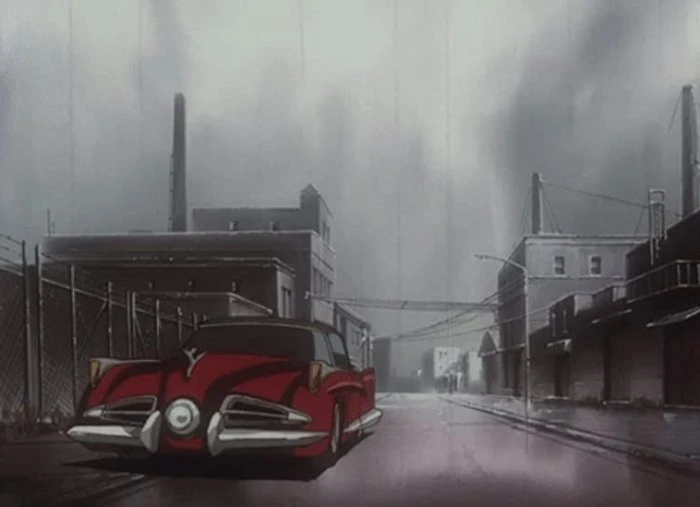
The show is mind blowingly genre bending. The future setting puts it firmly in Science Fiction, complete with some fine space battles. At the same time the bounty hunter aspect evokes the Western and this is made more explicit in some episodes. However, the greatest stylistic influence is probably 'Film Noir,' which comes out most strongly in the flashback sequences and when our heroes are doing the drudge work of investigation, complete with downbeat Jazz score. At the same time it is also a definitive piece of Cyberpunk, especially in those episodes in which technology is central to the plot. A number of other genres and sub-genres also get a look in, most notably Japanese Yakuza and 'Chanbara' Samurai films.
The whole project is a film buff's delight. Those who enjoy pointing out obscure references, 'homages,' and outright grand larceny can re-watch the whole thing time after time and still find something new. One moment it is the original Spaghetti Western Django, the next it is the "Blaxploitation" classic Shaft. Spike is proficient in both Jeet Kune Do, the supremely practical version of Kung Fu developed in real life by Bruce Lee, and Gun Fu, the supremely impractical pastiche of Kung Fu using firearms found in the films of John Woo, among others. Woo's A Better Tomorrow and its sequel are particularly big influences, as is Blade Runner. There are also a number of television references. Those looking very closely will see the registry number of the 'Enterprise' from Star Trek in a strange place, and Spike's cool look was apparently influenced by the actor Yusaku Matsuda in the popular Japanese show Detective Story - fans in the West are more likely to remember Matsuda for his superb villain in Sir Ridley Scott's Black Rain, the actor's last film before his tragically early death.
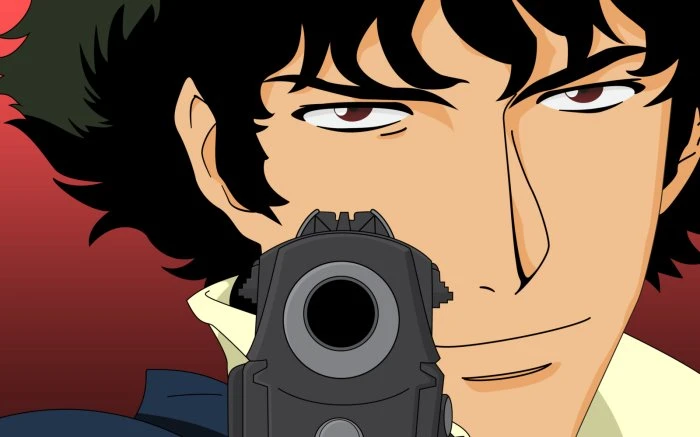
Indeed, Cowboy Bebop is the very epitome of Postmodernism. The visual style covers the whole range from dark, brooding expressionism to bright, cheerful "pop art." There is a definite early Sixties vibe to the whole thing, not least in the titles sequence. The music is, if anything, even more eclectic. Given the title of the show and many of the episodes, it is no surprise that various types of Jazz - including, but not only, Bebop, of course - dominate, especially in the more noir-ish sequences, but there is also a lot of Western style guitar music, some of it with a Morricone Spaghetti Western feel. One episode deserts Jazz for the Blues, while the end credits feature a "J-pop" ballad. Composer Yoko Kanno is apparently the real life model for Radical Edward and the original soundtrack ran to seven albums.

This eclecticism influences even the philosophy of the show. Cowboy Bebop is self consciously philosophical. Existentialism is a major theme: the characters are not in the service of any higher narrative, but drift aimlessly in the void of space. Yet there are hints that there are alternatives. While important scenes take place in massive deserted Church buildings, Christianity is presented sympathetically as a living faith in the form of a nun looking after lost and orphaned children, including Radical Edward. If our characters are lonely and purposeless, is it because they have chosen to separate themselves? Faye, cut off from her past after being cryogenically frozen for decades, secretly wants a sense of belonging again, while Spike, by contrast, wants to move on from what motivated him when he was younger. The solution for them both may be found on the 'Bebop,' in their new family, but can they accept that?

The script, true to its Postmodernism, seems to offer no real conclusions in any sense. This may be because Cowboy Bebop looks to have been very much a collaborative effort, with the team at the production company, Sunrise, all pitching in under the collective pseudonym Hajime Yatate. One gets the impression that everyone just included what they happened to like. Thus Ein is a Pembroke Welsh corgi simply because someone happened to have one - which turned out to be fortuitous, because he is just perfect. Birds and, Japan being Japan, cats also make welcome appearances. The ethos of the whole thing may perhaps best be summed up in the character of Jet Black, a big bruiser who can nevertheless talk knowledgeably about Jazz and Blues, quote Goethe, cook to gourmet standard, and cultivate Bonsai trees - Postmodernism personified.
These ingredients come together to provide an entertainment experience that is both exhilarating and intellectually stimulating, a rare combination. It is not without its flaws. The fact that episodes are less than 25 minutes long often forces the plot along too briskly. Important story points are sometimes easy to miss, especially in the dubbed version, and there is insufficient time to develop potentially interesting guest characters. There are some jarring inconsistencies of pace and tone. It takes its time to find its groove, and only when the full crew is finally aboard does it really take off.
Perhaps for these reasons, it was not a big hit when it was first shown on Japanese television. Indeed, some episodes were considered unsuitable to air, so a "clip episode," called appropriately 'Mish-Mash Blues,' had to be put together very quickly to fill up a vacant slot. However, it soon became a "cult" success in Japan and the United States, where the highly regarded dubbed version was shown frequently on Cartoon Network. A small multimedia franchise was established in Japan in the form of a couple of video games and some 'manga' comics - the reverse of the more usual process, in which 'anime' is based on 'manga.' A feature film followed later.
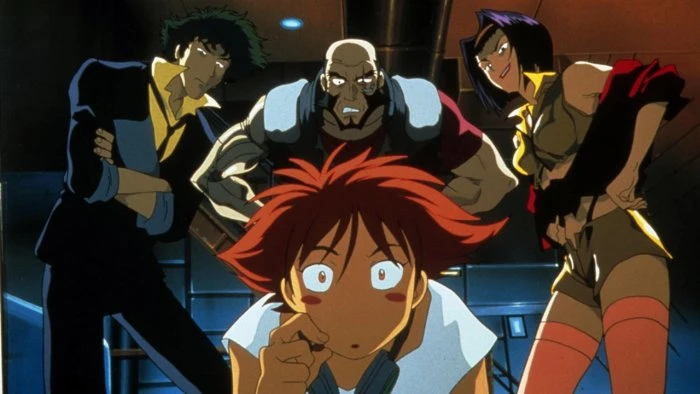
The English language version of the original show has proved very influential in Hollywood. There are frames in the animated section of Quentin Tarantino's Kill Bill Volume 1 that look as if they come straight out of Cowboy Bebop and Joss Whedon's legendary Firefly owes it an immense debt - from the basic concept of a few misfits trying to earn enough to keep their spaceship flying to the Western style guitar cues in the soundtrack.
This prompted Netflix to try to exploit the classic status of the 'anime' with a live action remake which was released in 2021. The sheer cynicism of this, combined with some unforced errors in production and marketing, did not go down well with hardcore fans of the original, who should have been the most important target market. The new show failed critically and commercially and was cancelled with astonishing speed. Whether it deserved that may be a story for another day. See you then, Cowboy.
Review: John Winterson Richards
John Winterson Richards is the author of the 'Xenophobe's Guide to the Welsh' and the 'Bluffer's Guide to Small Business,' both of which have been reprinted more than twenty times in English and translated into several other languages. He was editor of the latest Bluffer's Guide to Management and, as a freelance writer, has had over 500 commissioned articles published.
He is also the author of ‘How to Build Your Own Pyramid: A Practical Guide to Organisational Structures' and co-author of 'The Context of Christ: the History and Politics of Rome and Judea, 100 BC - 33 AD,' as well as the author of several novels under the name Charles Cromwell, all of which can be downloaded from Amazon. John has also written over 100 reviews for Television Heaven.
John's Website can be found here: John Winterson Richards
Seen this show? How do you rate it?
Seen this show? How do you rate it?
Published on February 4th, 2022. Written by John Winterson Richards for Television Heaven.


